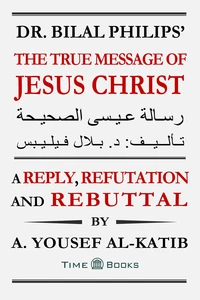The Jurisprudence of Jihād: The Use of Force and the Ethics of Violence through the Prism of the Islamic Law of War
Par :Formats :
Disponible dans votre compte client Decitre ou Furet du Nord dès validation de votre commande. Le format ePub protégé est :
- Compatible avec une lecture sur My Vivlio (smartphone, tablette, ordinateur)
- Compatible avec une lecture sur liseuses Vivlio
- Pour les liseuses autres que Vivlio, vous devez utiliser le logiciel Adobe Digital Edition. Non compatible avec la lecture sur les liseuses Kindle, Remarkable et Sony
- Non compatible avec un achat hors France métropolitaine
 , qui est-ce ?
, qui est-ce ?Notre partenaire de plateforme de lecture numérique où vous retrouverez l'ensemble de vos ebooks gratuitement
Pour en savoir plus sur nos ebooks, consultez notre aide en ligne ici
- FormatePub
- ISBN978-1-68109-097-9
- EAN9781681090979
- Date de parution07/10/2021
- Protection num.Adobe DRM
- Infos supplémentairesepub
- ÉditeurTellerBooks
Résumé
Beginning with a general introduction to Islamic law and its sources (u?ul al-fiqh), this study examines the Islamic law of war, or fiqh al-jihad. It opens with a discourse on Islamic public international law, including the bifurcation of the world into dar al-Islam (abode of peace) and dar al-?arb (abode of war). The reader's attention is then turned to jus ad bellum (the legitimacy of resorting to armed force) and jus in bello (the laws governing the use of force in armed conflict) within the framework of classical Islamic law.
Next, the book discusses contemporary militant jihadi fiqh (jurisprudence), with a view towards examining the views on killing, the targeting of civilians and the means and methods of warfare espoused by armed groups operating in the name of Islam, including the Taliban and al Qaeda. This is followed by a discussion of Yusuf Al-Qaradawi's treatise, Fiqh al-Jihad, and Qaradawi's response to the views of contemporary jihadi militants.
Finally, the book concludes with a discussion on the challenges of using public international law and Islamic law to increase Islamic armed groups' compliance with humanitarian law.
Next, the book discusses contemporary militant jihadi fiqh (jurisprudence), with a view towards examining the views on killing, the targeting of civilians and the means and methods of warfare espoused by armed groups operating in the name of Islam, including the Taliban and al Qaeda. This is followed by a discussion of Yusuf Al-Qaradawi's treatise, Fiqh al-Jihad, and Qaradawi's response to the views of contemporary jihadi militants.
Finally, the book concludes with a discussion on the challenges of using public international law and Islamic law to increase Islamic armed groups' compliance with humanitarian law.
Beginning with a general introduction to Islamic law and its sources (u?ul al-fiqh), this study examines the Islamic law of war, or fiqh al-jihad. It opens with a discourse on Islamic public international law, including the bifurcation of the world into dar al-Islam (abode of peace) and dar al-?arb (abode of war). The reader's attention is then turned to jus ad bellum (the legitimacy of resorting to armed force) and jus in bello (the laws governing the use of force in armed conflict) within the framework of classical Islamic law.
Next, the book discusses contemporary militant jihadi fiqh (jurisprudence), with a view towards examining the views on killing, the targeting of civilians and the means and methods of warfare espoused by armed groups operating in the name of Islam, including the Taliban and al Qaeda. This is followed by a discussion of Yusuf Al-Qaradawi's treatise, Fiqh al-Jihad, and Qaradawi's response to the views of contemporary jihadi militants.
Finally, the book concludes with a discussion on the challenges of using public international law and Islamic law to increase Islamic armed groups' compliance with humanitarian law.
Next, the book discusses contemporary militant jihadi fiqh (jurisprudence), with a view towards examining the views on killing, the targeting of civilians and the means and methods of warfare espoused by armed groups operating in the name of Islam, including the Taliban and al Qaeda. This is followed by a discussion of Yusuf Al-Qaradawi's treatise, Fiqh al-Jihad, and Qaradawi's response to the views of contemporary jihadi militants.
Finally, the book concludes with a discussion on the challenges of using public international law and Islamic law to increase Islamic armed groups' compliance with humanitarian law.


